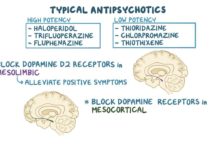Nausea is a symptom everyone dreads. You’ve almost certainly experienced that queasy feeling at one time or another — perhaps while reading a book in a moving vehicle, or maybe after eating something that didn't agree with you.
Though it’s not usually not serious, here’s what you need to know when you feel nauseated — and when you should see a doctor.
Causes and Risk Factors of Nausea
- Early stages of pregnancy (morning sickness)
- Seasickness and other forms of motion sickness
- Severe pain
- Being exposed to chemical toxins
- Emotional stress, such as fear
- Gallbladder disease
- Indigestion
- Particular smells or odors
Risk Factors
Duration of Nausea
How long nausea lasts depends on the cause.
Complications of Nausea
Children have a greater risk of becoming dehydrated, particularly when vomiting occurs with diarrhea, because they may not notice or be able to tell an adult that they are experiencing symptoms of dehydration, such as being thirsty. If you’re caring for a sick child, be on the lookout for these signs of dehydration:
- Dry mouth and lips
- Sunken eyes
- Rapid breathing or pulse
- In infants, less frequent urination and a sunken fontanel (soft spot on top of the baby's head)
If you experience the following symptoms along with nausea, call your doctor immediately:
- Blood in vomit
- Intense headache or stiff neck
- Fatigue
- Confusion
- Reduced alertness
- Severe abdominal pain
- Vomiting with fever over 101 degrees F
- Vomiting and diarrhea both occurring
- Rapid breathing or pulse
- Light-headedness
Related Conditions and Causes of Nausea
- GERD (reflux) and ulcers
- Blocked intestine
- Concussion or brain injury
- Appendicitis
- Migraine
- Encephalitis
- Meningitis
- Other infections
- Metabolic conditions
- Sometimes, nausea and vomiting can be a sign of a more serious problem such as a heart attack; kidney or liver disorders; central nervous system disorders; brain tumors; and some types of cancer, according to the Cleveland Clinic.
Resources We Love
Cleveland Clinic
Cleveland Clinic, a nonprofit academic medical center, is one of the largest and most respected hospitals in the United States and a leader in research, education, and health information. Their website offers information about the causes and treatment of nausea.
Mayo Clinic
The Mayo Clinic is a nonprofit organization that specializes in clinical practice, education, and research. Its website offers information about the causes and treatment of nausea.
MedlinePlus
MedlinePlus is a service of the National Library of Medicine (NLM), the world's largest medical library, which is part of the National Institutes of Health (NIH). It offers information about the causes and treatment and nausea.
Editorial Sources and Fact-Checking
- Nausea & Vomiting. Cleveland Clinic. July 23, 2019.
- Nausea and Vomiting. Stanford Health Care.
- Nausea and Vomiting. Mayo Clinic. June 16, 2020.
- Nausea and Vomiting. MedlinePlus. March 17, 2016.
- Nausea. Harvard Health Publishing. January 2019.
- Nausea and Acupressure. MedlinePlus. July 11, 2019.
- Scorza K, Williams A, Phillips JD, Shaw J. Evaluation of Nausea and Vomiting. American Family Physician. July 1, 2007.













































